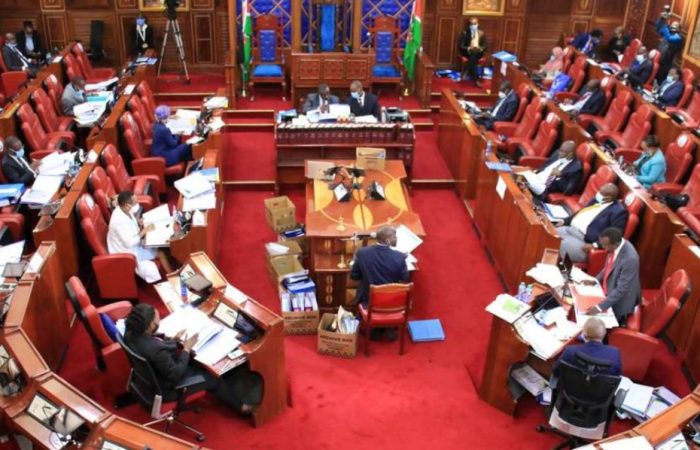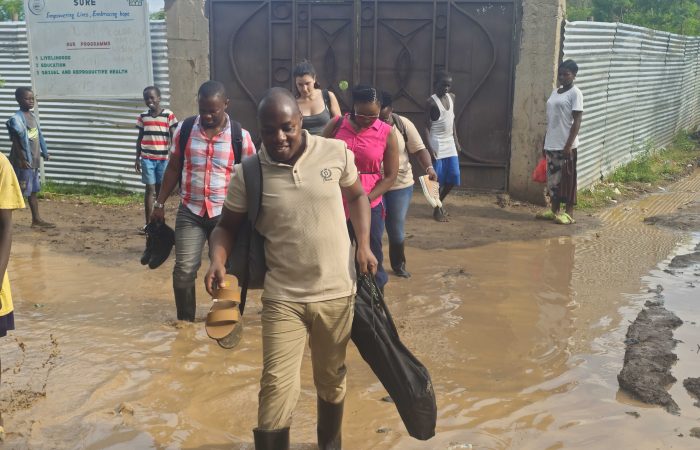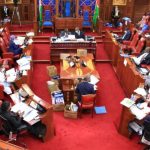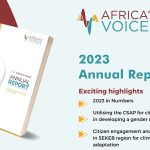As we mark the 2022 edition of World Radio Day themed “Radio and Trust” on 13th February, at AVF we reflect down memory lane on how we have harnessed the medium to enable our partners and decision makers to listen and understand citizens’ insights and views.
Radio is critical in ensuring that citizens remain informed, educated and entertained, hence fostering connections within communities. As an organisation that prides itself in connecting citizens and decision makers in Kenya and Somalia, we leverage the rich radio landscape in Africa to ensure citizens are the drivers of social change and take part in decision making across several sectors i.e Livelihood, Health, Education, Governance, Gender, Agriculture, Humanitarian and Youth.
We deploy interactive radio and SMS methodology to provide and create inclusive forums for democratic and social change debates. As a result of radio’s unique ability to reach out to the biggest possible audience, we have enabled communities to influence social change and participate in decision making by serving as an arena for all voices to speak up, be represented, and heard.
Over the years we continue to deploy radio dialogue and SMS feedback methodology in our two broad thematic areas: Governance and Accountability and Citizen Evidence for Social Change.
Under the Governance and Accountability programme, our radio approach is changing how citizens in Kenya and Somalia participate in decision-making on matters that affect them. We foster crucial citizen-authority encounters where issues that affect them are addressed, action is identified, and those in power are held to account. Our radio conversations are mainly shaped by audience input (via SMS, instant messaging and social media), to create meaningful spaces for public dialogue.
On the other hand, under the Citizen Evidence for Social Change programme, we deploy interactive radio and SMS methodology to understand the norms that underpin harmful practises, determine key drivers of social and behaviour change and track the shift in beliefs over time. Through radio and SMS conversations, negative views are contested by the public itself and positive attitudes for social change made visible.
The ability to allow citizens to be the drivers of the conversations is what sets the AVF’s approach apart. Through the approach, members of the public can participate in radio discussions by responding to radio questions. They send their questions and responses to a particular topic by way of SMS through a toll free number broadcasted during the live shows or Public Service Announcements. During the radio shows, AVF brings expert radio guests drawn from the community. The guests share their experiences and opinions and respond to participants’ questions.
Using social science research methods we then turn the citizens’ SMS, gathered during the broadcasts, into timely and compelling evidence at scale. We tell citizen evidence-based stories and support decision-makers through collaborative insight generation and ideas for action.
The AVF’s interactive radio approach has been applied successfully in Kenya and Somalia and supported both governments and development partners. According to UNICEF’s Somalia Country Representative in 2016, “using innovative techniques such as interactive radio shows to broadcast information and gather audience data, we managed to go beyond our regular programming.”
United Nations Educational, Scientific and Cultural Organisation (UNESCO) espouses that radio is still the most frequently used medium on the planet. Therefore, it behoves decision makers to embrace use of radio approaches to enhance the inclusion of citizens in decision-making across humanitarian and development programmes.
Conversely, radio stations need to cater to a wide range of communities by providing a diverse range of programs, perspectives, and content, as well as reflecting the diversity of their audiences in their operations and organisations. This will not only be in consonance with 2022 world radio theme, Radio and Trust, but outwit the conception that radio is at the verge of extinction following the widespread use of social media.
Photo by Mohamed Sheikh Nor




